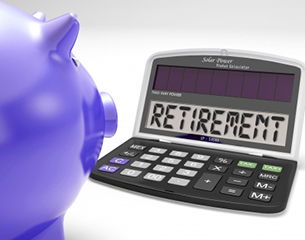The average income received by pensioners fell last year, according to figures published by the Department of Work and Pensions.
Its retirement income statistics show that the average weekly income for all pensions was £304 in 2017/18. This is less than the weekly income of £317 recorded in 2016/17.
However, the DWP points out that the longer term trend has seen retirement incomes rise steadily over the last two decades. It points out that this figure has almost doubled since 1994/95 – when the average weekly income received by pensioners was £161.
The figures show that last year, the average income received by a single pensioner was £213, while the average income received by a retired couple was £454.
This steady increase in retirement incomes has been boosted by a number of factors, including more generous state benefits, with the “triple lock” ensuring that the state pension rises by whichever is greatest: inflation, average earnings or 2.5 per cent.
These statistics look in more detail at where this retirement income comes from. It shows that for the last year benefit income (which includes the State Pension) was the largest component of total gross income for both retired couples (35 per cent) and single pensioners – where it accounted for staggering 59 per cent of income.
The next biggest contribution was from occupational pensions. These accounted fro 29 per cent of total gross income for retired couples, and 25 per cent for single pensioners.
Income from earnings made up 22 per cent income for retired couples, and seven per cent of the income for single pensioners. The DWP says this figures was higher for couples as in some cases one partner was above the State Pension Age, and the other was below – and their earnings contributed to this figure.
In both cases, only a very small percentage (less than 5 per cent) of income came from personal pensions.
The statistics also showed that older pensioners – aged 75 or over – had lower income than younger pensioners. Their average incomes were £353 and £271 per week, respectively.
Those who were within five years of their retirement also had larger incomes than those who were further away from this date. This DWP data also showed that single men typically had larger retirement incomes than single women.
AJ Bell senior analyst Tom Selby says: “After decades of rapidly rising retirement incomes the good times may be coming to an end.
“The last of the baby boomers are now approaching retirement, with many lucky enough to have built up generous defined benefit entitlements. Those who have already retired have also enjoyed boosts in the value of their state pension since 2010 through the triple-lock.
“The next generation, on the other hand, will likely experience a scaling back in state pension provision, with DB now almost exclusively the preserve of the public sector.”
He pointed out that auto-enrolment has boosted pension coverage but the decline of DB benefits, and scaling back of the state pension, mean younger savers risk having lower retirement incomes than their parents.
Selby adds: “While automatic enrolment has been hugely successful in increasing the number of people saving in a pension, at current levels it is unlikely to be enough to continue the trend of rising retirement incomes.
“The scale of this shift in society is hard to overstate. Workers will be required to sacrifice more of their income today to provide a decent retirement later in life, or face working into their 70s or even beyond.
